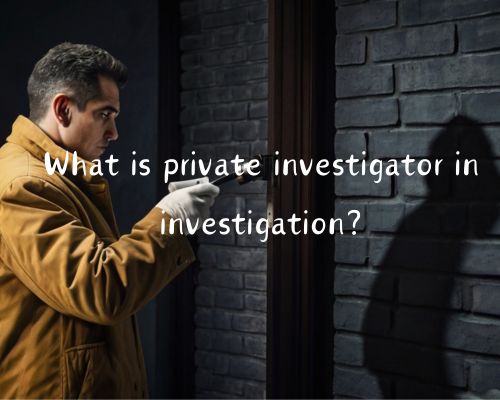Who is Responsible for Property Repairs?

Key Roles and Responsibilities Explained
When it comes to property repairs, knowing who bears the responsibility can save you time, money, and headaches. Whether you’re a landlord or a tenant, the lease agreement often serves as the primary guide.
Landlords are typically responsible for major repairs and maintaining a habitable living environment, while tenants are usually tasked with minor maintenance and keeping the property clean.

In rental properties, landlords must ensure that the property is safe and meets all local housing codes.
This includes repairs to essential systems like plumbing, heating, and electrical.
As a tenant, your responsibilities might include routine upkeep such as changing light bulbs, taking out the trash, and notifying the landlord of any significant issues that arise.
David Spade from Star Roofing Contractors has to say “Understanding who is responsible for what creates a smoother renting experience for both parties. Clear communication and a well-drafted lease agreement can prevent disputes and ensure that property repairs are handled efficiently and fairly.”
Landlord Repair Responsibilities
As a landlord, you are legally required to maintain the property and ensure it is safe and habitable.
This includes various aspects of repairs and general upkeep that are dictated by lease agreements, state laws, and local ordinances.
Understanding the Lease Agreement
Your lease agreement serves as a roadmap for your repair responsibilities. It outlines what is expected of you as a landlord and what responsibilities fall on your tenant.
Key points to check:
- Structural repairs: Both you and your tenant should know who handles structural issues.
- Appliance upkeep: Specify which appliances fall under your care.
- Maintenance: Note any shared maintenance duties or procedures.
Clearly defining these roles can prevent misunderstandings and ensure a smooth tenant-landlord relationship.
Maintenance and Habitability Requirements
You must ensure the property adheres to habitability standards.
This involves maintaining basic health and safety conditions in the home, as required by state and local laws.
Essential systems to maintain:
- Heating and Cooling: Make sure HVAC systems function efficiently.
- Plumbing and Electrical: These should be regularly inspected and promptly repaired.
- Structural Integrity: Ensure roofs, walls, and floors are safe and stable.
These elements directly impact the tenant’s ability to live safely and comfortably in the home.
Addressing Major Repairs and Emergencies
Major repairs, such as fixing a broken HVAC system or addressing structural damage, fall under your remit.
Emergency situations, like water leaks or power failures, must be handled immediately to avoid further damage.
Steps to manage major repairs:
- Prompt Response: Always act quickly to repair issues.
- Quality Repair: Hire qualified professionals for extensive work.
- Documentation: Keep records of repairs and communicate clearly with your tenants.
Speed and efficiency in handling these issues are crucial for maintaining a good landlord-tenant relationship.
Legal and Local Law Considerations
Understanding local housing codes and state laws is crucial for fulfilling your legal duties as a landlord.
These laws specify the minimum standards for health and safety in rental properties.
Important regulations include:
- Warranty of Habitability: You must ensure the property is livable.
- Building Codes: Follow all local and state building regulations.
- Timely Repairs: Respond quickly to repair requests to stay compliant.
Staying informed about these laws helps you avoid legal trouble and ensures you provide a safe and habitable living environment for your tenants.
Tenant Repair Responsibilities and Rights
Understanding your responsibilities and rights concerning repairs is crucial for maintaining a good landlord-tenant relationship.
With David Spade from Star Roofing Contractors, this section will provide clear information about your obligations, how to report problems, options for dealing with repairs, and your rights in cases of disputes over disrepair.
Minor Repairs and Maintenance Obligations
As a tenant, you are typically responsible for minor repairs and routine maintenance tasks.
This can include replacing light bulbs, unclogging drains, and keeping the rental property clean to prevent issues like mold.
Regular maintenance tasks, such as changing HVAC filters or taking care of the yard (if specified in your lease), also fall under your duties.
Normal wear and tear, resulting from everyday use, typically does not fall under your liability.
When and How to Report Problems
It’s essential to report maintenance issues promptly to your landlord. Doing so helps prevent minor problems from becoming costly repairs.
Most landlords require you to inform them in writing, which provides documentation of your notice.
Proper notice typically involves detailing the issue, when it began, and any steps you have taken to mitigate it.
This communication can often be made through email or a written letter, depending on your rental agreement.
Understanding Repair and Deduct Options
Many jurisdictions allow a “repair and deduct” approach.
This means if your landlord fails to address a reported issue, you can arrange for repairs yourself and then deduct the cost from your rent. However, this option requires adherence to specific legal procedures.
Usually, you must provide your landlord with proper notice and give them a reasonable time to fix the issue before taking this action. Check your local laws and your rental agreement to understand this option.
Tenant’s Rights in Disrepair Disputes
You have specific rights if your rental property is not kept in a habitable living condition. If a landlord fails to perform necessary repairs, you may have grounds to withhold rent until the repairs are made.
This action is often regulated by strict legal guidelines.
In cases of disputes, consider consulting a landlord-tenant attorney to understand your remedies. Your remedies may include taking your case to small claims court. Ensuring you have proper documentation of all communications and issues will support your claims.






